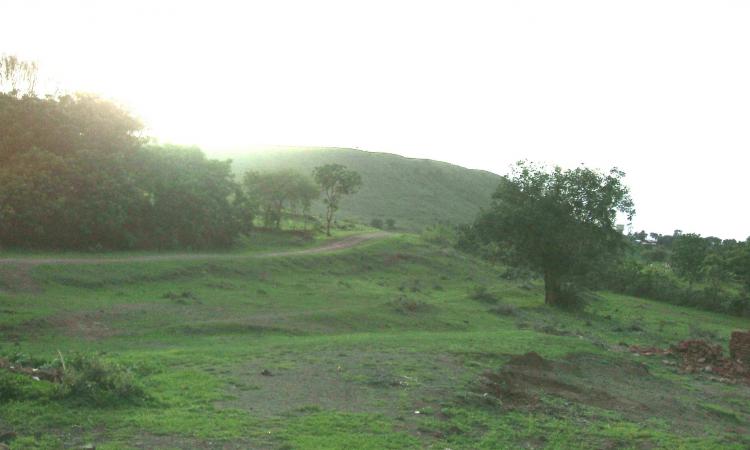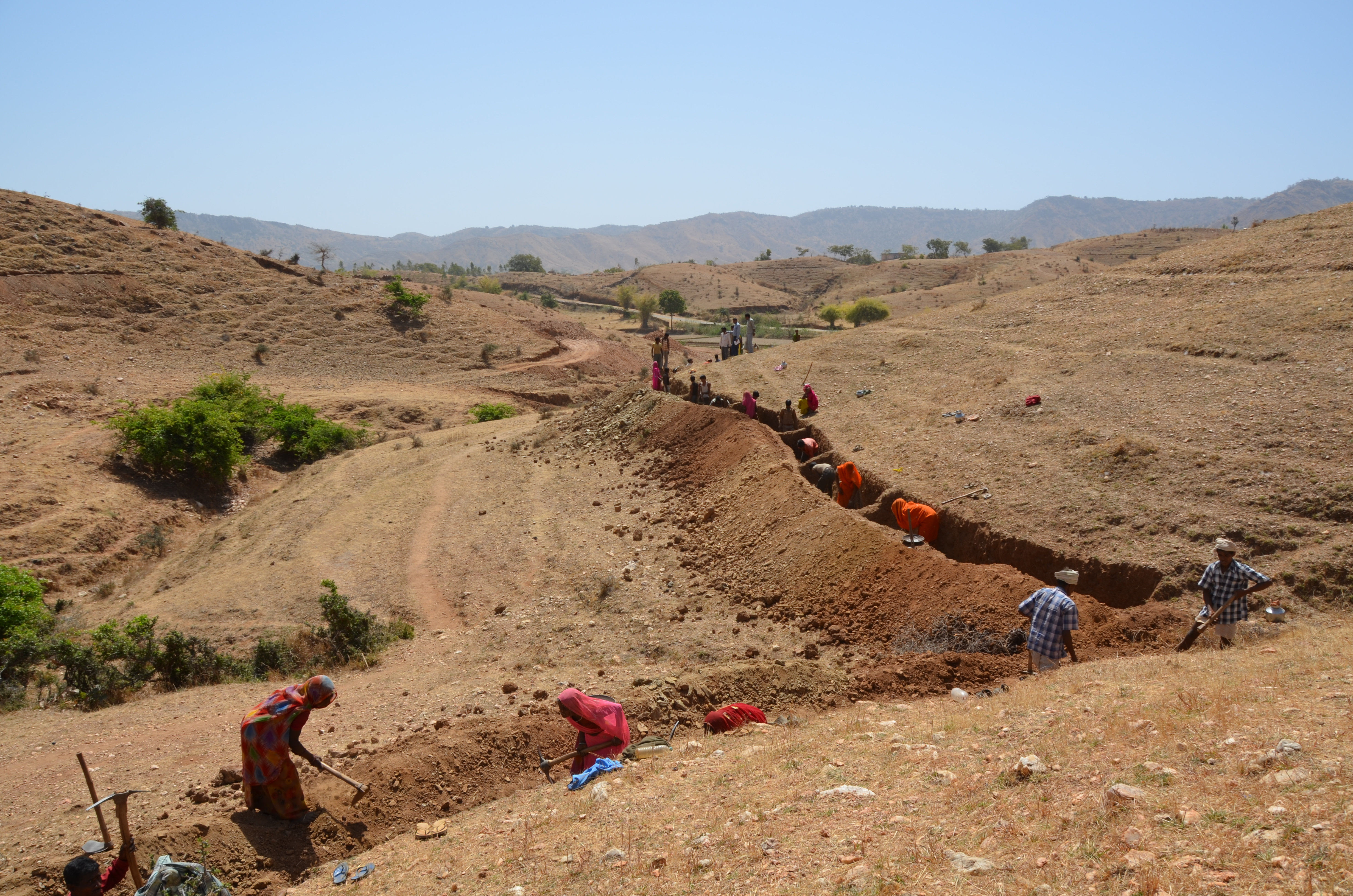
Marathwada in Maharashtra is an arid region with rainfall of less than 750 mm per year. Most villages in the region face acute water scarcity. Kachner in Aurangabad was no exception.
This meant that only rainfed agriculture was possible when the rains were good. Most of the year, and particularly in summer, there was a scarcity of water even for basic needs of its 339 households. This lack of water and no agriculture resulted in migration. Almost all families left their homes and migrated to wherever they found work--any work, to survive. Only unskilled labour on marginal wages was possible here. Who can think of education when the stomach is empty and the throat is parched? The story of Kachner was a story of a vicious circle of water scarcity, migration and poverty.
The people of Kachner wanted to break away from this. So in 2007, they approached Pune-based Watershed Organisation Trust (WOTR) to solve their problem.
WOTR aids villagers
WOTR’s Wasundhara Approach was aimed at addressing issues of land degradation, water scarcity and distress migration through Participatory Integrated Watershed Development. This approach demands that the village communities should spearhead their own quest for development. Interventions and activities are crafted according to the needs and choices of the village which would be implemented, adhering to the guidelines.
The greatest challenge WOTR faced was trying to unite a village that had been so used to being divided on the basis of caste, class and gender. In addition, villagers found it difficult to stomach the ban on tree felling and free grazing of cattle, which they depended on for firewood and fodder, respectively. The ban was required for the regeneration of trees, grasses, and biomass--a non-negotiable requirement of WOTR's Watershed Development approach. 
So, although WOTR and the committees were not surprised by the scepticism and reluctance of many villagers to participate and comply with the rules, they had to work very hard to overcome the initial roadblocks to progress.
The situation today, however, is different. The improvement across all wealth ranking categories is visible. Prior to WSD, when the land was degraded and water was scarce, the households held the land jointly. Then, 29 percent households were medium to large landowners; 58 percent households were small landowners and 13 percent were landless.
Today, there are 25 percent medium and large landowners; 65 percent small landowners and 10 percent are landless. During the project and following its implementation, large- and medium-sized farms (which were jointly owned earlier) were divided among the sons in the family and a number of landless households were able to purchase land (from the earnings of WSD), while a few began cultivating patches of forest land. Health and hygiene interventions have created awareness and have motivated families to adopt good sanitation practices.
Improved living conditions
Today 35 households have their own toilets as compared to the pre-project stage where there were no toilets. Besides this, the drainage water that flowed from the homes and onto the settlement roads is controlled by 41 soak pits that were constructed as part of the project. This indicates that the change has seeped into the mindset of the people. The project has contributed significantly to providing water for domestic purposes to homes.
Before the project implementation, the majority of households (215) fetched water from wells owned by others. There were no private tap connections in the households. With community contribution, the project installed pipelines in two villages where 109 households were provided with private water taps. Additionally, as part of the project, 98 water purifier units were provided on a subsidy basis (based on wealth ranking) to the villagers. Thus, project interventions have contributed to the provisioning of safe drinking water.
Since its inception in 1993, WOTR has expanded its operations to over seven states including Jharkhand, Madhya Pradesh, Rajasthan, Odisha, Telangana, Andhra and Maharashtra.
WOTR gets recognition
It was this kind of integrated and large-scale work that has earned WOTR the prestigious Land for Life Award 2017, awarded by the United Nations Convention on Combating Desertification recently. WOTR was one of the three organisations on a global level to win the 2017 Land for Life Award.
Its unique strength lies in its “on-field” experience and the systems-based participatory approach that WOTR adopts. WOTR was initiated to support a large-scale multi-actor, multi-level, multi-sectoral, community-led watershed development programme for poverty reduction called the Indo-German Watershed Development Program (IGWDP). It was launched in Maharashtra by Fr Hermann Bacher, co-founder and chairman of WOTR, and Crispino Lobo, co-founder and managing trustee.
WOTR has been active in mobilising vulnerable communities in the semi-arid and resource fragile regions to come out of poverty by harvesting rainwater wherever it falls and regenerating the ecosystems they live in. It has now expanded its work to 13 thematic areas. Women’s empowerment, sustainable livelihoods, agro meteorology, climate change adaptation, disaster risk reduction, sustainable agriculture, water budgeting and water use efficiency management are its key focus areas.
Besides its sustainable land management (SLM) approach, water budgeting and micro irrigation have benefited at least 355,832 people. In addition, WOTR’s works have contributed to the reduction of rural to urban migration and have created substantial local employment opportunities in rural areas.
It has trained over 380,000 people from India and various countries across the world in natural resources management and watershed development. WOTR works not only in land restoration, poverty reduction and climate change adaptation, but also leads in capacity building, empowering vulnerable communities and women, and advocating its WSD approach at the state and national levels.
In the context of the award, Crispino Lobo says, “Scaling up and achieving sustained impact require active collaboration of multiple stakeholders from across the governance, public, private and civil society sectors working on all levels, from the village upwards to the provincial, state, national and even international levels.”
He adds, “The union government has set an ambitious target of doubling farm income by 2022 but this will be impossible to achieve without combating land degradation. Around 57 percent of land in India suffers from desertification. Hence, we need to teach farmers how to catch rainwater across landscapes, recharge groundwater aquifers and improve soil health. In India, 60 percent of the population depends on the land and forests. Water is essential not only to agriculture but also to other livelihoods.”
(This article has been contributed by the communications team at WOTR.)
/articles/wotr-wins-international-award